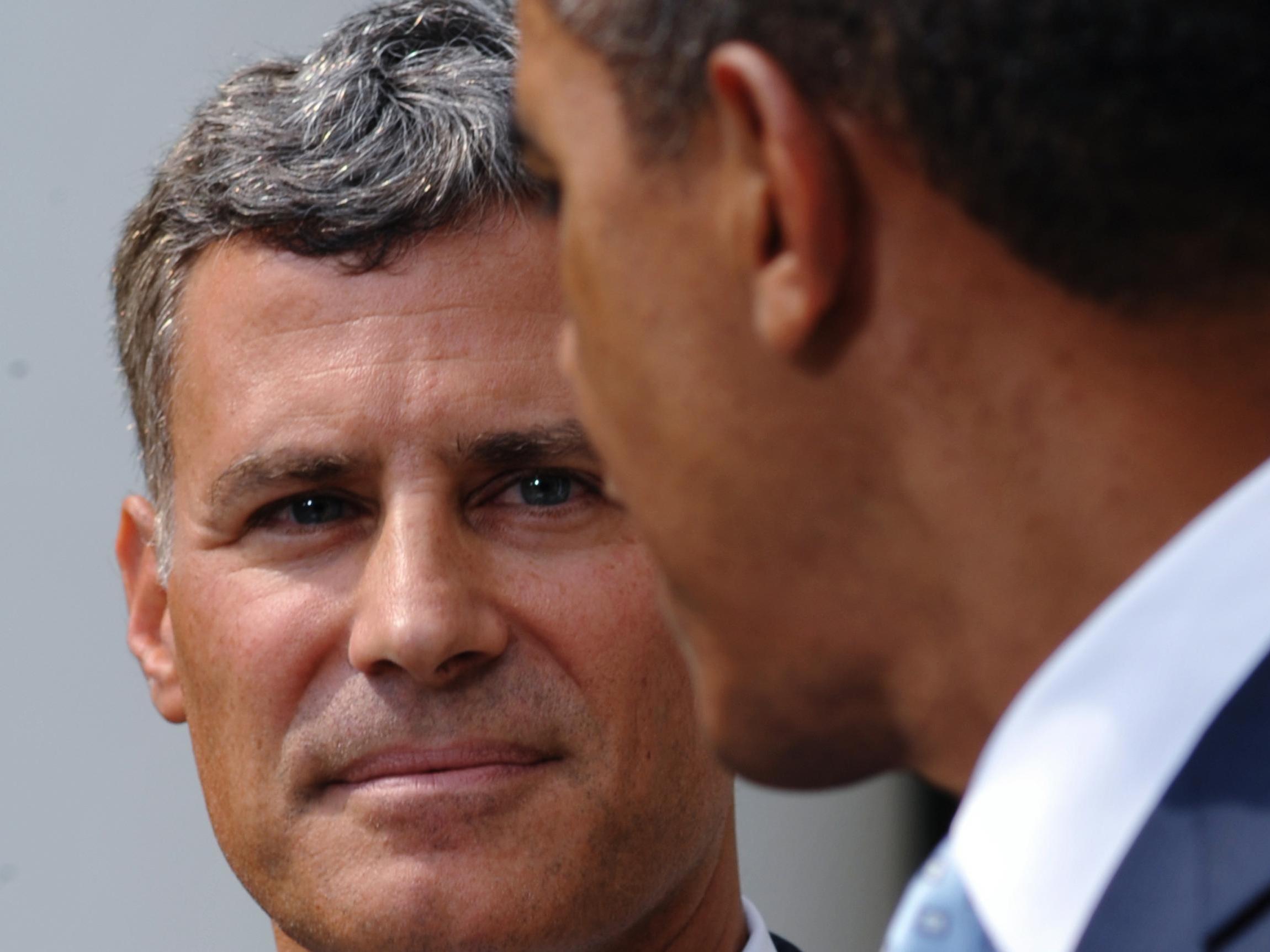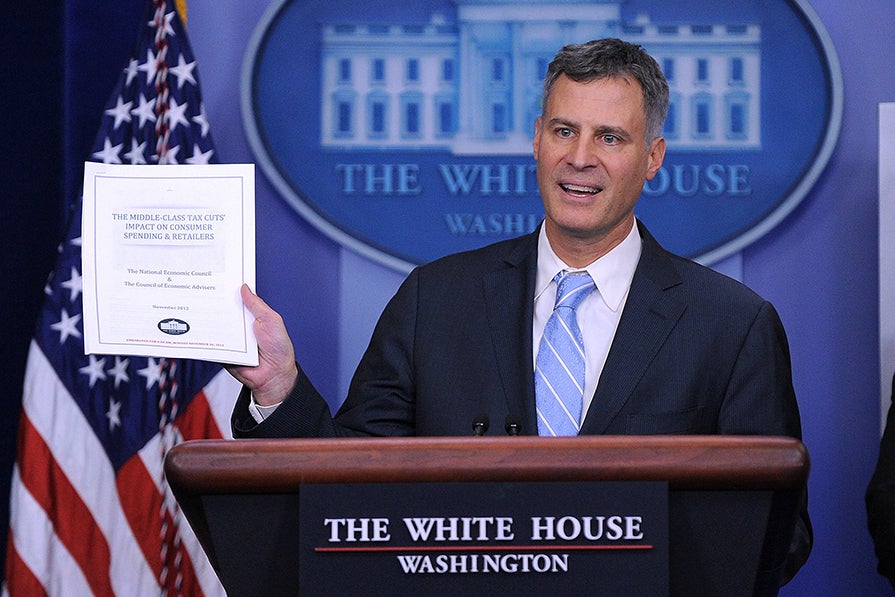Alan Krueger, cutting-edge economist who served President Obama
The Princeton professor’s research was pivotal in understanding topics ranging from the minimum wage to the terrorist mindset

Alan Krueger was the American labour economist who was an adviser to presidents Obama and Clinton.
Krueger drew on empirical research, rather than abstract theories, for insights into the impact of minimum wage increases, the backgrounds of individuals to turn to terrorists and the rising price of concert tickets – his last book, Rockonomics, will be published in June.
He was professor of political economy at Princeton University, where he had taught since 1987, taking the occasional leave of absence to work for the US government.
Krueger, who has died at the age of 58, served for one year under Bill Clinton as the US Labour Department’s chief economist, and he was an assistant treasury secretary from 2009 to 2010 under Barack Obama.
In the wake of the global financial crisis, he tried to boost America’s economy through stimulus measures such as a credit fund for small businesses and the “cash-for-clunkers” programme, which offered rebates for new-car buyers.
When he became chair of the president’s Council of Economic Advisers in 2011, he recalled a tip from one of his predecessors in that role, Edward Lazear, who had advised him to stay in his own lane and avoid national-security or foreign-affairs officials.

Krueger put aside the subject-hopping he was used to as a scholar to become the leading empirical economist in a field known for its emphasis on abstract modelling.
Over 30 years, Krueger made the world his laboratory. He surveyed concertgoers at Bruce Springsteen and U2 shows, pored over the academic records of 11,600 children in Tennessee and tracked the hiring practices of 400 fast-food restaurants on the east coast, drawing conclusions that pushed public policy in new directions.
His research found schoolchildren benefit from being in a class of 15 students for even just a single year; that terrorists were not necessarily from poor backgrounds; and the America’s opioid epidemic is linked to the labour market.
While working under Obama, Krueger developed a concept known as the “Great Gatsby curve” to illustrate the dangers of growing income inequality, which he credited with causing “an unhealthy division in opportunities” from one generation to the next.
But he was probably best known for his studies on raising the minimum wage, which he began in the late 1980s with economist David Card.
The researchers conducted a side-by-side comparison of the fast-food industry in New Jersey, which had just increased its minimum wage to $5.05 per hour from $4.25, and fast-food restaurants across the border in eastern Pennsylvania, where the minimum wage was unchanged at 80 cents lower.
Their results, published in a 1994 issue of the American Economic Review, contradicted the theory that wage increases lead to reduced employment. Instead, New Jersey restaurants added about 2.5 workers and payrolls shrank in Pennsylvania.
Krueger was by then working at the Labour Department, where his boss, secretary Robert Reich, pushed for and eventually succeeded in obtaining an increased minimum wage.
Alan Bennett Krueger was born in Livingston, New Jersey, a Newark suburb, in 1960. His father was an accountant and his mother a schoolteacher.
He studied industrial and labour relations at Cornell University, where he received a bachelor’s degree in 1983. Krueger said he had initially planned to become a lawyer, having seen 1979 film Norma Rae – in which Sally Field plays a factory worker – but became entranced by statistical analysis while doing research for a paper.
Turning towards economics, he did graduate work at Harvard University, receiving a master’s degree in 1985 and a doctorate in 1987.
He married Lisa Simon, a Cornell classmate, and had two children.
Alan Krueger, economist, born 17 September 1960, died 16 March 2019
© Washington Post
Join our commenting forum
Join thought-provoking conversations, follow other Independent readers and see their replies
Comments
Bookmark popover
Removed from bookmarks